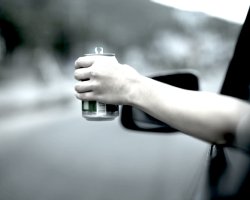8 Tips for Tackling the Tough Talks: College, Alcohol, and Drugs

College semesters are in full swing, with many young Americans leaving their homes and traveling to college towns across the U.S. to enroll in courses. For most, college semesters provide opportunities for learning, growth, and pathways to rewarding careers. But for some, attending college can also lead to peer pressure, drinking, drug use, and other risky behavior.
That’s why it’s so important for parents to talk with their sons and daughters about navigating the college environment and staying away from drugs and alcohol.
College Students Use Some Mind-Altering Substances at Greater Rates Than their Non-College Peers
The Monitoring the Future Survey, compiled by researchers at the National Institute on Drug Abuse, compared drug use trends among college-age adults who were not in college and their peers who attended college. A similar report by the Substance Abuse and Mental Health Services Administration (SAMHSA) also provided insightful data on college student drinking and drug use.
Facts from both research papers are worth mentioning here:
- While college-age adults not enrolled in college saw a 2.4% increase in marijuana use from 2013 to 2018, college students in the same age bracket increased their marijuana use by 7.1%, almost triple the increase for their non-college peers.
- One in seventeen college students uses marijuana daily or near daily.
- College students have dramatically increased their use of marijuana vaporizers. In 2017, 5.2% of college students vaped marijuana, compared to 7.8% of their non-college peers. But in 2018, 10.9% of college students were vaping marijuana, compared to just 7.9% of their non-college peers.
- College students experiment with Adderall at much greater rates than their non-college peers. About 11.1% of college students (14.6% of college males) experiment with Adderall compared to 8.1% of their non-college peers.
- College students use cocaine more often than non-college adults in the same age bracket. About 4% of college students experiment with cocaine, compared to 3% of non-college adults.

- College students also drink to excess at a rate somewhat higher than their non-college peers. About 28% of college students drink alcohol to excess, compared to 25% of individuals who are in the same age group but who do not attend college.
- Based on a 2016 study from SAMHSA, on an average day during the college semester, 2,179 full-time college students drank alcohol for the first time, and 1,326 used an illicit drug for the first time, suggesting that college is often where young adults are first exposed to drugs and alcohol.
- Beyond first-time use, the SAMHSA study also shed light on the overall rate of experimentation among college students. According to that report, of the 9 million full-time college students in the United States, 1.2 million drank alcohol, and 703,759 used marijuana.
What Risk Factors Do College Students Face?
As college campuses across the country have witnessed a gradual increase in alcohol, cannabis, stimulant, and illicit drug use among students, it has become clear students face unique factors and circumstances that put them at risk for drinking alcohol or using drugs. That is cause for alarm, as substance abuse at college is associated with negative outcomes like lower academic performance, a higher probability of unemployment after graduation, and an increased risk of committing and experiencing sexual assault.
According to one paper on the subject, some risk factors college students face include affiliation with sororities and fraternities, high academic pressure, and heightened peer pressure due to unique social settings at college. While many colleges and universities have established programs to prevent substance abuse among their students and to treat addiction when it does occur, parents can make strides in solving this problem by having conversations with their sons and daughters about the risks of experimenting with drugs and alcohol.
8 Things to Consider When Talking to a College Student About Drugs and Alcohol
Parents can be a powerful influence in their children’s lives, even after they are “all grown up” and have gone to college. For example, something as simple as having conversations with teens and young adults about drugs and alcohol can influence whether or not one’s children drink or use drugs at college. Parents often forget that, even as adults, their children still care very much what their parents think, and they want their parents to think well of them and approve of their behavior. That’s why parents should have conversations with their kids and utilize the following strategies:

1. Establish open communication. Parents must first make it easy for their sons and daughters to speak with them about drugs and alcohol. Developing open, trusting communication between parent and son or daughter is the first step to helping them avoid drinking and drug use while away at college. Sons and daughters who feel safe talking to their parents will also be more likely to listen to and follow their parents’ advice.
2. Show you care. Many teens and young adults will tune out the moment a conversation about drugs and alcohol feels like it’s turning into a lecture or when they feel as though they’re being talked down to. Parents should listen as much or more than they talk and empathize with their kids about the challenges and pressures they may be going through.
3. Draw a clear but compassionate line. Parents must ensure their children, regardless of age, understand what their parents expect of them. Parents should set clear and realistic expectations for their children’s behavior.
4. Ask open-ended questions. Parents should try to gauge where their children are on the subject of drugs and alcohol, and the best way to do this is by asking open-ended questions that require more than a “yes” or “no” answer.
5. Stay calm. Even when children have something to say to their parents that their parents don’t want to hear, it’s better that they say it than keep it hidden. Parents should not disincentivize their children from being open and honest with them by responding angrily when their children tell them something that makes the parents unhappy.
6. Stick to the facts. Parents should get educated about the harmful effects of drugs and alcohol before talking to their kids about them. When it’s time to have the conversation, parents should stick to the facts. There is no need to exaggerate or invent things about drugs and alcohol to scare someone away from using such substances. The facts alone are more than concerning.
7. Be honest. Sometimes, teens and young adults try to avoid pressure from their parents by turning it on them. “You drank and used drugs when you were young,” they might say. Parents shouldn’t lie or avoid this rebuttal but rather embrace it and use it to talk about why those experiences were negative and why parents don’t want their kids to have the same experiences.
8. Talk about peer pressure. Peer pressure is one of the leading factors in a teen or young adult’s first exposure to drinking or drug use. Parents should talk with their kids about safely extricating themselves from peer pressure. Having a reason to leave, always having one’s transportation figured out in advance, having prepared and run through scenarios where peer pressure may occur, always going to social gatherings with a friend (using the buddy system), and learning different ways to say no can all help a teen or young adult avoid peer pressure should it occur.
College semesters provide great opportunities for young people to grow, expand their horizons, and build an education to create a meaningful and rewarding career. Parents can help deter their children from drinking or using drugs by getting educated and having conversations with their kids.
Sources:
- NIDA. “Drug and Alcohol Use in College-Age Adults in 2018.” National Institute on Drug Abuse, 2018. nida.nih.gov
- SAMHSA. “A Day in the Life of College Students Aged 18 to 22: Substance Use Facts.” Substance Abuse and Mental Health Services Administration, 2016. samhsa.gov
- BC. “Student Drug Use and Misuse in College.” Best Colleges, 2022. bestcolleges.com
- NIH. “Substance Use Among College Students.” National Institutes of Health, 2019. ncbi.nlm.nih.gov
- NIAAA. “Make a Difference: Talk to Your Child About Alcohol – Parents.” National Institute on Alcohol Abuse and Alcoholism, 2020. niaaa.nih.gov


 ®
®